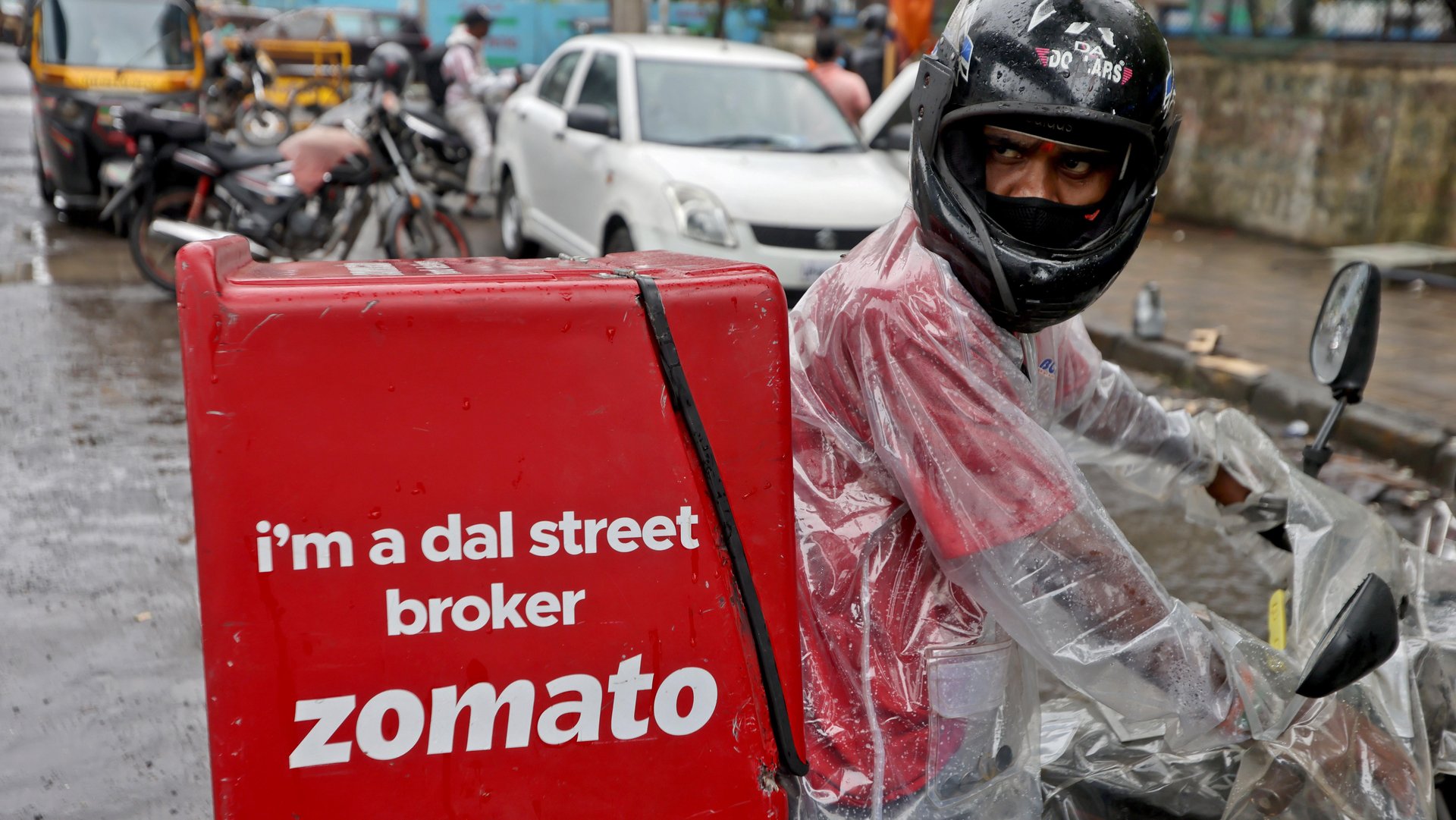Uber is dumping its stake in Zomato as the last lockups for insiders expire
Uber plans to sell its 7.8% holding in Indian food-delivery firm Zomato today (Aug. 2).

Uber plans to sell its 7.8% holding in Indian food-delivery firm Zomato today (Aug. 2).
The ride-hailing giant is looking to raise up to Rs 3,300 crore ($420 million), according to a term sheet issued by Bank of America Securities, the sole bookrunner for the deal, The Economic Times reported.
Why is Uber dumping Zomato stock?
In January 2020, Uber Eats sold its India business to Zomato. The $350 million all stock-transaction gave Uber 9.99% ownership in the Gurugram-based food-delivery firm.
While quitting a sector with high competition and low margins is routine for San Francisco-based Uber, Zomato’s subsequent dismal performance was unexpected. This bleeding American company took a bigger hit, losing $707 million on its Zomato investment alone in the first half of this year.
Zomato’s stock in a free-fall
A year ago, the highly-anticipated Zomato initial public offering (IPO) finally went live. It was a risky move given the weak financial standing and the payoff has not been great, with the stock sliding nearly 60% from is debut price.
On July 25, it tumbled 14.3% to an all-time low after the lock-in period for pre-IPO investors expired. The lock-in period had minimised selling pressure in the early stages of the IPO.
The stock recovered from this dip after reporting earnings on July 26, but not enough to make up for the year-long plummet. The company, which boasted of a massive $13 billion-plus valuation during its public debut, is now valued at a far lower $4.6 billion.
Can Zomato’s stock recover?
Industry-watchers aren’t writing the stock off yet given Zomato’s keen eye on profitability.
It is restructuring various businesses and aims to reach EBIDTA break-even latest by September 2023. It has also downgraded its Blinkit acquisition from $400 million to $320 million.
“With only 15 million monthly transacting users currently, Zomato has a long runway for customer acquisition and revenue growth, albeit this may come at the cost of near-term profitability,” an Aug. 2 Jefferies analyst’s note said. “The platform also has an optionality of expanding into other adjacent categories such as grocery etc.”
